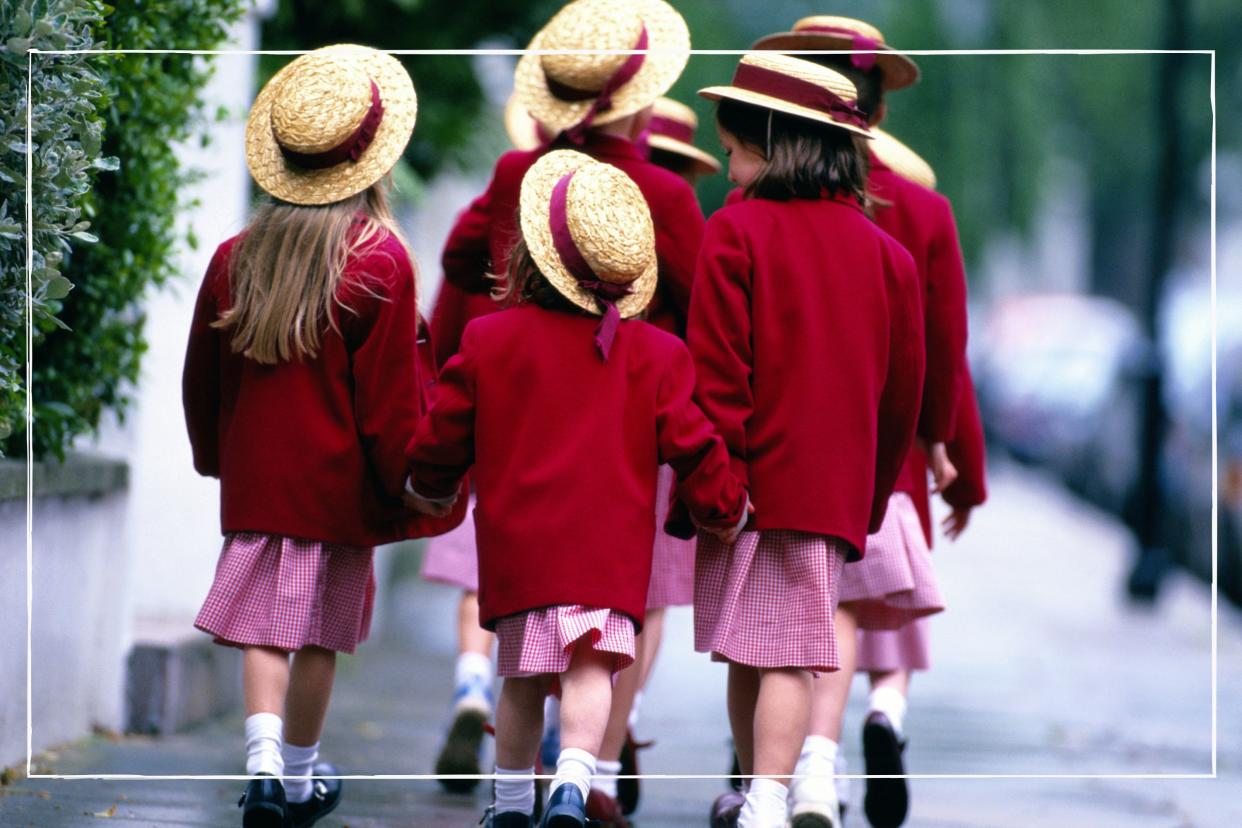Rising school costs could see 1 in 4 children removed from private education, according to new research, but there are solutions parents can try

With private school fees on the rise, some parents could be forced to take their children out of private education altogether.
Much like childcare costs, inflation has lead to an increase in private school fees too, and there is a chance they could rise again following the general election. Election day is just around the corner, taking place on 4 July 2024 (if you're worried this might mean for your child's school day, we've got you covered). But while the election debates rage on, those with children in private school could see school fees rise further.
We take a look at what this increase would look like, why it might be introduced and the impact it could have, as well as how parents with kids in private school can mitigate the impact.
Are private school fees going up?
According to the Independent School Council's annual census, school fees for the 2023-24 academic year, increased by eight per cent, meaning the average cost for day pupils currently sits at around £18,000, rising to £42,000 per year for those pupils who board. This is largely down to inflation.
But there could be another increase on the cards. School fees are currently exempt from VAT, but the Labour Party has said that removing this tax break would help them to fund 6,500 new state school teachers in key subjects. As a result, school fees could go up by 20 per cent. There are reports that state that adding VAT could see a quarter (26 per cent) of children leaving private education. But until we know who wins the general election, it is not yet known if this policy will come into force.
What to do if you're concerned about private school fees
If you are concerned about rising school fees, then there are avenues that you can try in order to mitigate the impact of any further increases. Gianpaolo Mantini, Chartered Financial Planner at Saltus and founding member of the Institute for Financial Wellbeing, shares his top tips:
Speak to family – If you have concerns over paying school fees it's good to act as soon as possible, rather than waiting for fees to rise further. Gianpaolo says that it's worth 'pre-emptively speaking to family about your concerns, trying to give as much advance notice as possible, to see whether they may be in a position to provide any assistance – not at the point it becomes an ultimatum and immediate action needs to be taken that could disrupt your child’s education and development.'
Speak to the school – more than a third (33.5 per cent) of private school pupils receive help from bursaries or scholarships so it's worth speaking to the school to see if you qualify. Gianpaolo says: "Support may be available from your school, so it is always worth asking the question to be able to assess all options. You may find that the school also offers discounts for siblings, as well as for children whose parents are private school teachers themselves, are in the armed forces, or are members of the clergy. These are unlikely to be advertised anywhere so it is worth asking."
Pay the fees in advance – "If you are able to pay the school fees up front the savings are likely to be sizeable, both in terms of the discounts offered by the school for having more money to invest upfront, and the savings you’d make in terms of VAT." says Gianpaolo. "It is worth speaking to both your family and the school to see if this is possible. Anyone over 55 could take a lump sum from their pension to pay fees in advance, which could offer a tax efficient way of paying the fees up front."
Switch schools – Opting for a different school or arrangement can also help if you are concerned about rising costs. Day school is cheaper than boarding, and school fees vary significantly so there could be savings to be had. Gianpaolo explains: "For example, half (50 per cent) of the parents we surveyed said they plan to keep their child or children in private education if VAT is added but will have to make changes – either moving them from boarding to becoming a day pupil (26 per cent), or removing them from their current school and enrolling them in a less expensive one (24per cent)."
Seek financial advice – Gianpaolo adds: "Although it can sometimes feel daunting, if you are worried about the affordability of private education for you and your family, it is important to seek advice from an expert. A financial adviser can provide a clear view on the current shape of your finances and outline ways in which parents – and other family members if they want to help support – can most effectively finance their school fees."
For more school news, check out whether schools close on election day, and find out how much you could be fined for taking your child on holiday during term time.

 Yahoo News
Yahoo News 
